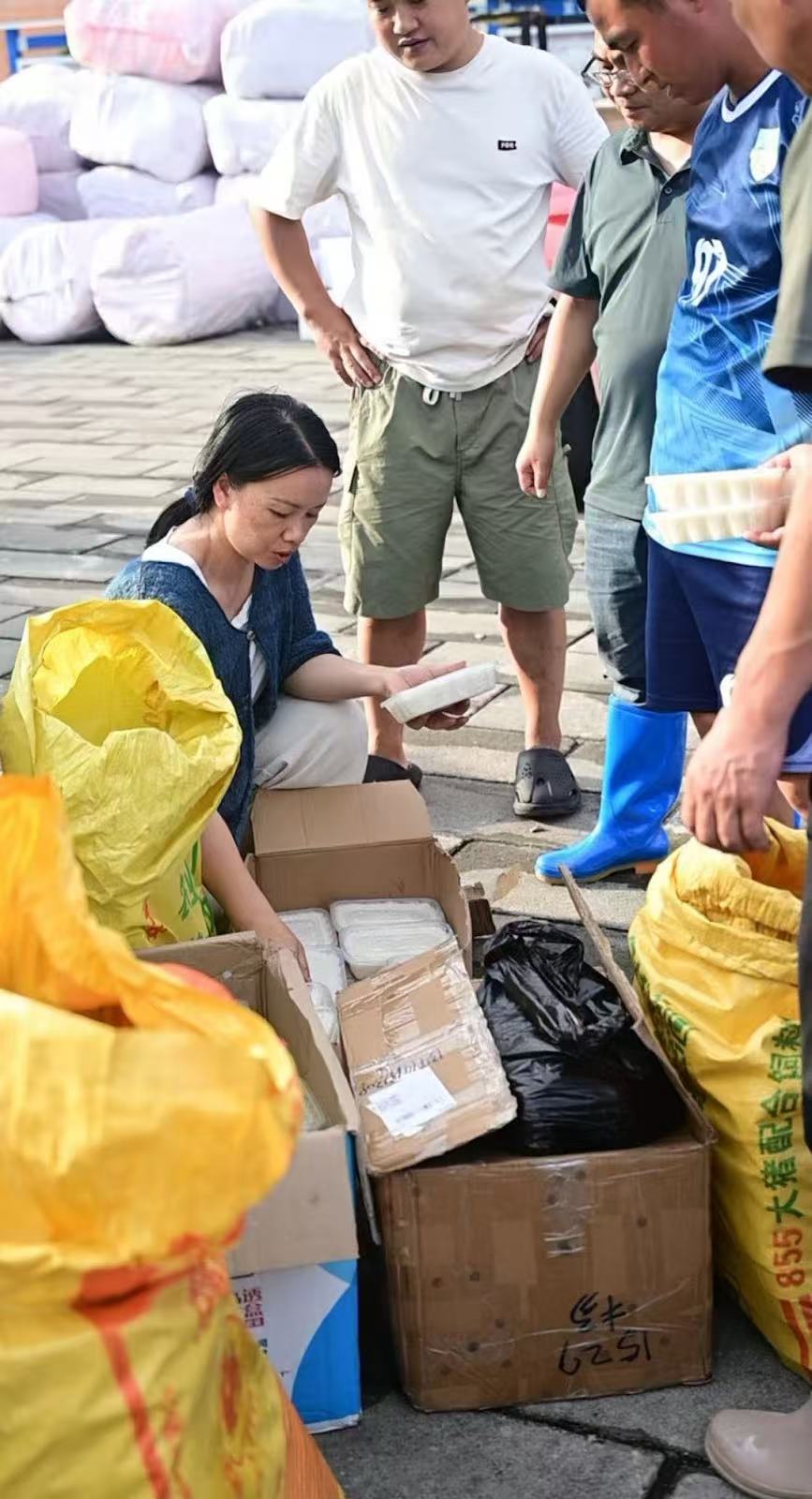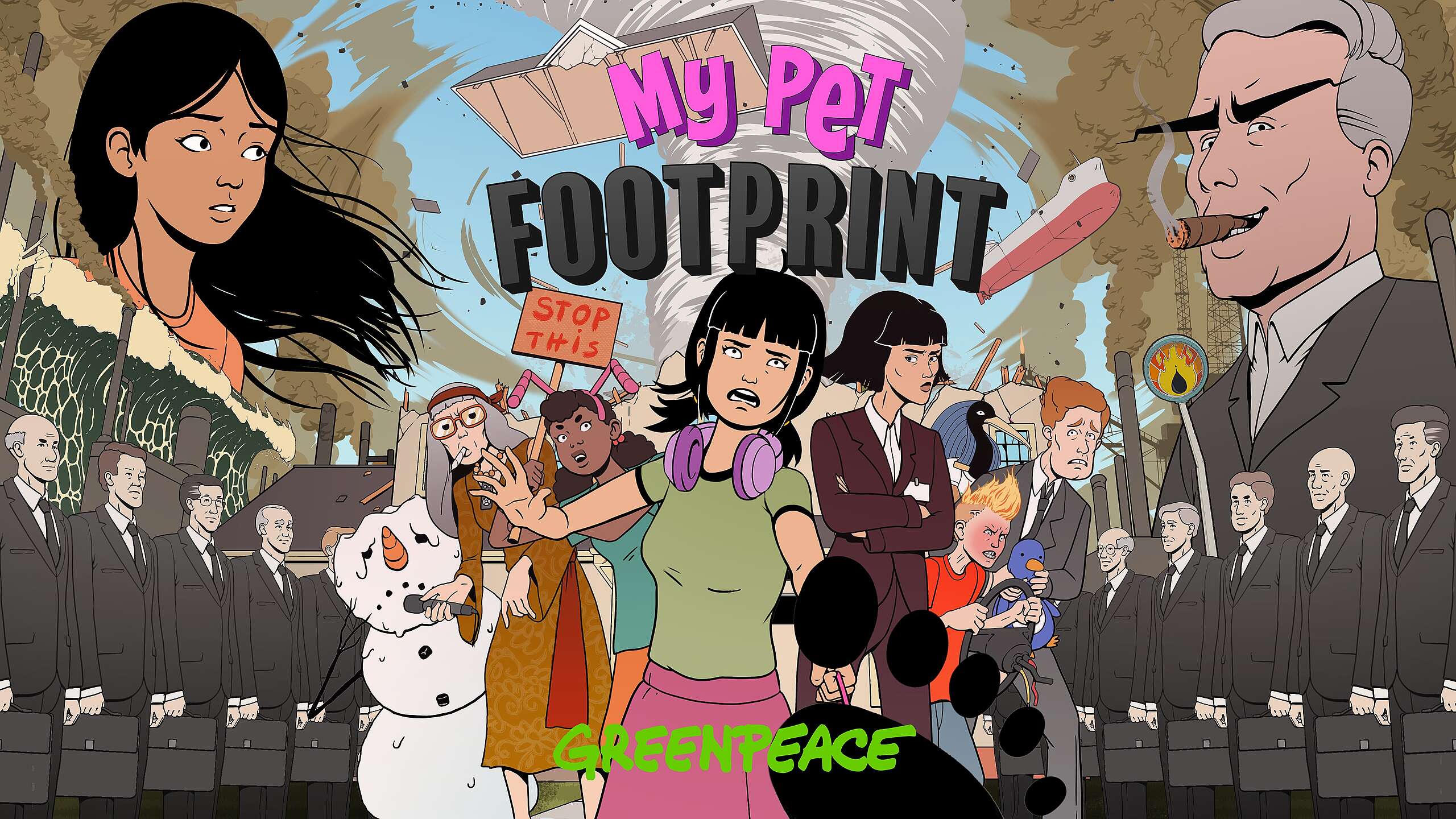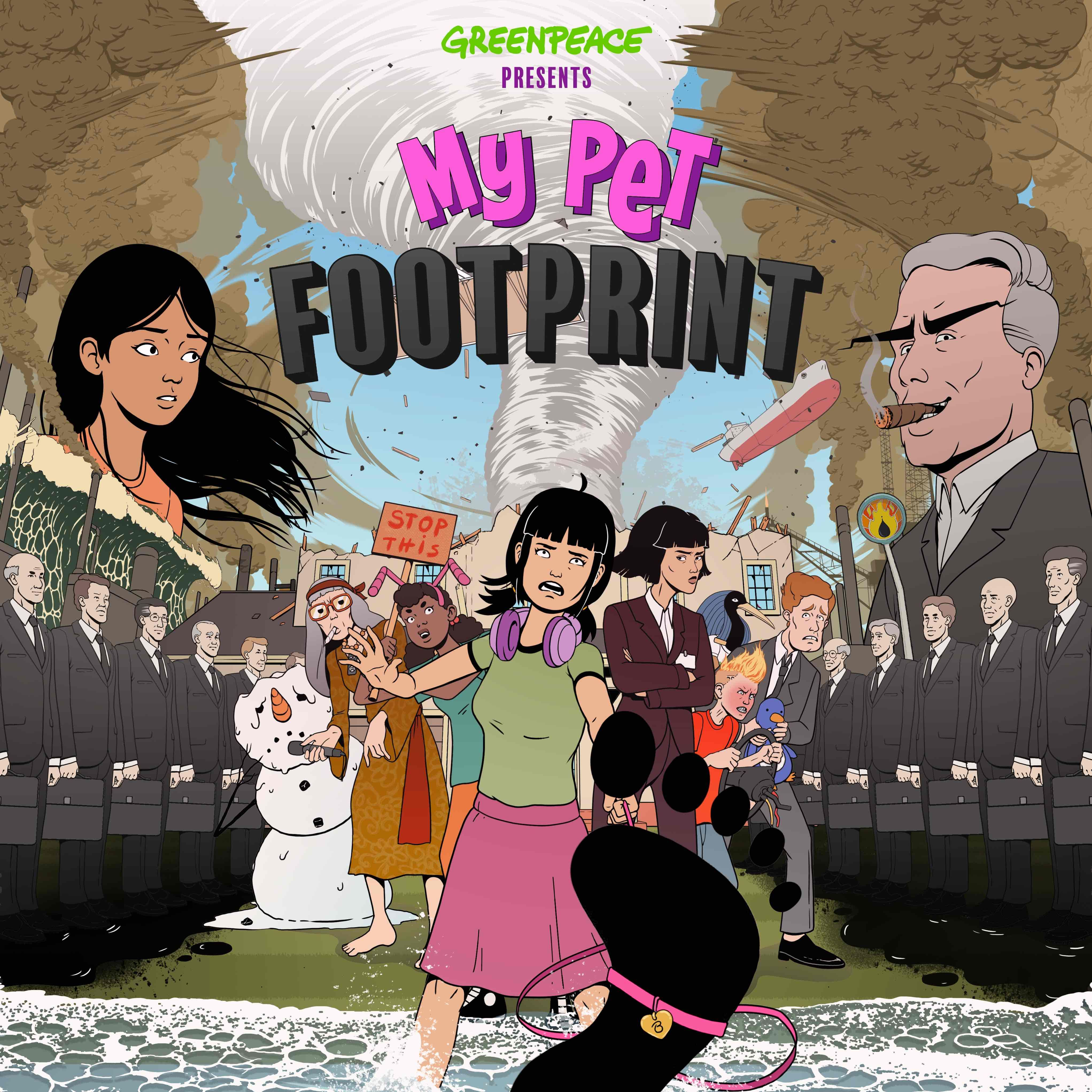2020 was a year of triumphs and trials. The Covid crisis prompted us to reflect on and cherish all what we have achieved. It also made us accept a new way of living, a new normal. And it reminded us of even greater crises facing our planet — the climate emergency and plastic pollution. We are determined to unite ever more closely to tackle these head on in 2021. Thank you for your amazing support, and we look forward to achieving so much more in this coming year with you by our side.
Visualizing the climate crisis
The pandemic tore across the planet in 2020, but we cannot forget an even greater crisis looming — the climate crisis. It is causing glaciers to melt, sea levels to rise, and intensifying extreme weather. As a coastal city, Hong Kong cannot hide from these threats. Two studies by Hong Kong Observatory projected that by the middle of this century we can expect super typhoons, like Mangkut, which ripped through Hong Kong in 2018, to strike us at least once a decade. Greenpeace used this data to create an interactive map that showed that such super storms could cause seawater surges to flood 28 sq km of land, affecting close to 100,000 people. We are urging the government to take urgent action to both prevent and mitigate this threat.
Read more: Climate change alert: will your home be safe by mid of the century?
Climate actions
Young people all over the world are making a bold stand for the climate. Hong Kong is no exception. Lance Lau, who is just 11 years old, is part of this wave. In 2020, Greenpeace worked closely with Lance to urge everyone to help “Save our climate”. We shot a short film that has been viewed over 200,000 times on Greenpeace’s Facebook page alone.
Greenpeace and Lance also collaborated on a series of online lectures on the climate crisis, taking advantage of the fact that we are all staying home to stay safe. Professor Amos Tai, Associate Professor of Earth System Science at The Chinese University of Hong Kong was a guest on one of our “climate classrooms”. He gave an entertaining lecture introducing the basics of the climate crisis.
Watch:Lance X Greenpeace 2050「新聞報道」
Read More: “Let’s Talk about Climate Change” human story series
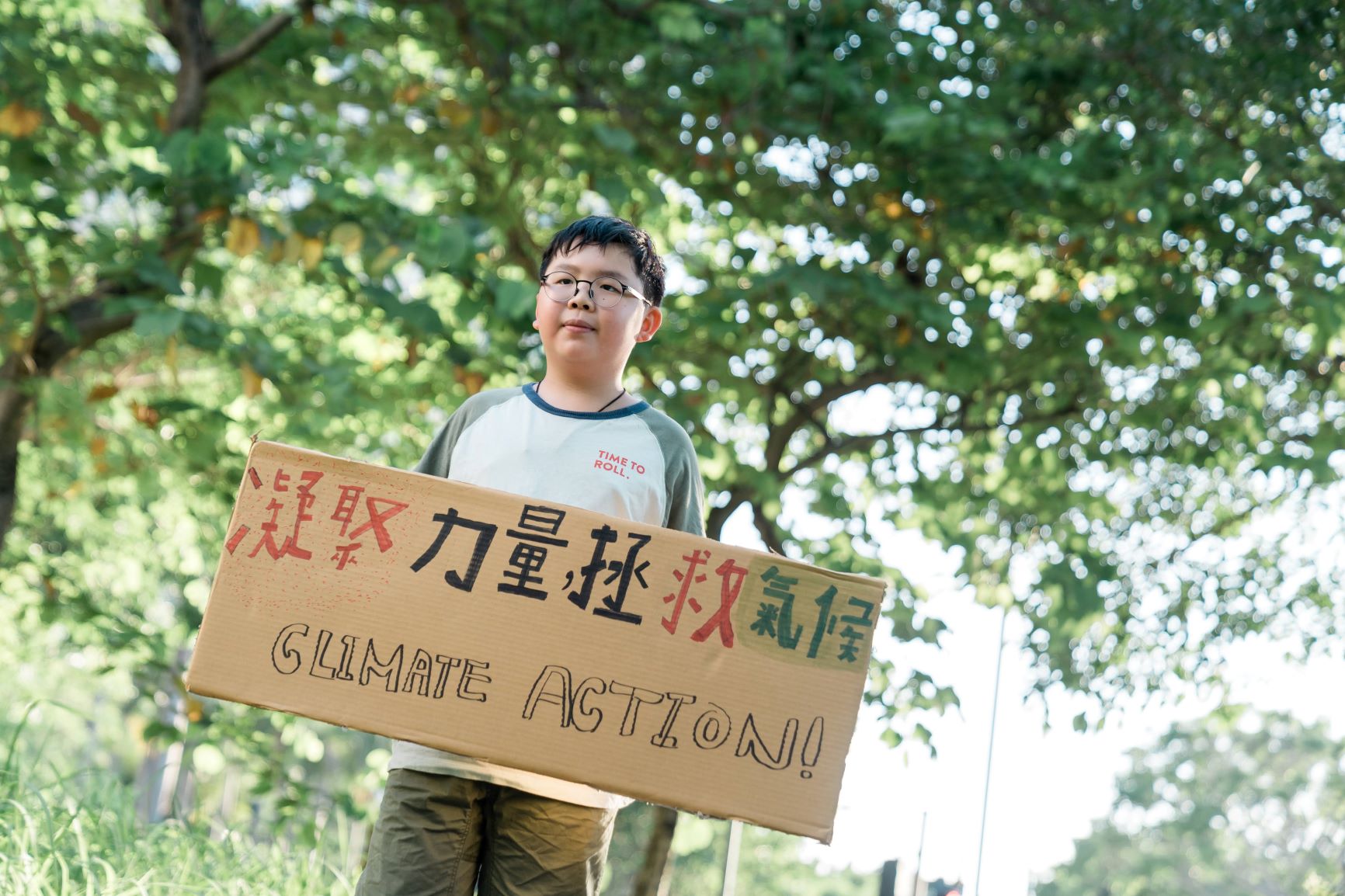
What does Hong Kong have to do with Amazon?
The Amazon is the world’s largest tropical rainforest. It stores nearly 100 billion tons of carbon dioxide from the atmosphere, that’s equivalent to 10 years of global carbon emissions. It plays an enormous role in protecting our climate, yet illegal deforestation is rampant. A recent Greenpeace report exposed how Brazil’s three major meat firms — JBS, Minerva and Marfrig — are bulldozing protected areas of the Amazon. Did you know that Hong Kong is a major export market for these three companies?
We investigated and discovered several local supermarkets selling “deforestation meat” from these three firms. ParknShop told Greenpeace that while it does indeed stock meat from JBS, it has now decided to change suppliers. This is the first time that a supermarket in Hong Kong has made a promise to cut ties with deforestation. Greenpeace held a joint press conference with Amnesty International’s branch in Hong Kong to raise awareness about this “deforestation meat” and also that JBS activities in the Amazon were threatening the livelihoods, and even the safety, of indigenous people living there. Greenpeace is calling on all supermarkets in Hong Kong to stand up for the planet and ditch all “deforestation meat” so that Hongkongers do not have to become complicit in destroying one of the world’s life saving rainforests.
Read More: How Hong Kong links to Amazon deforestation and what we can help
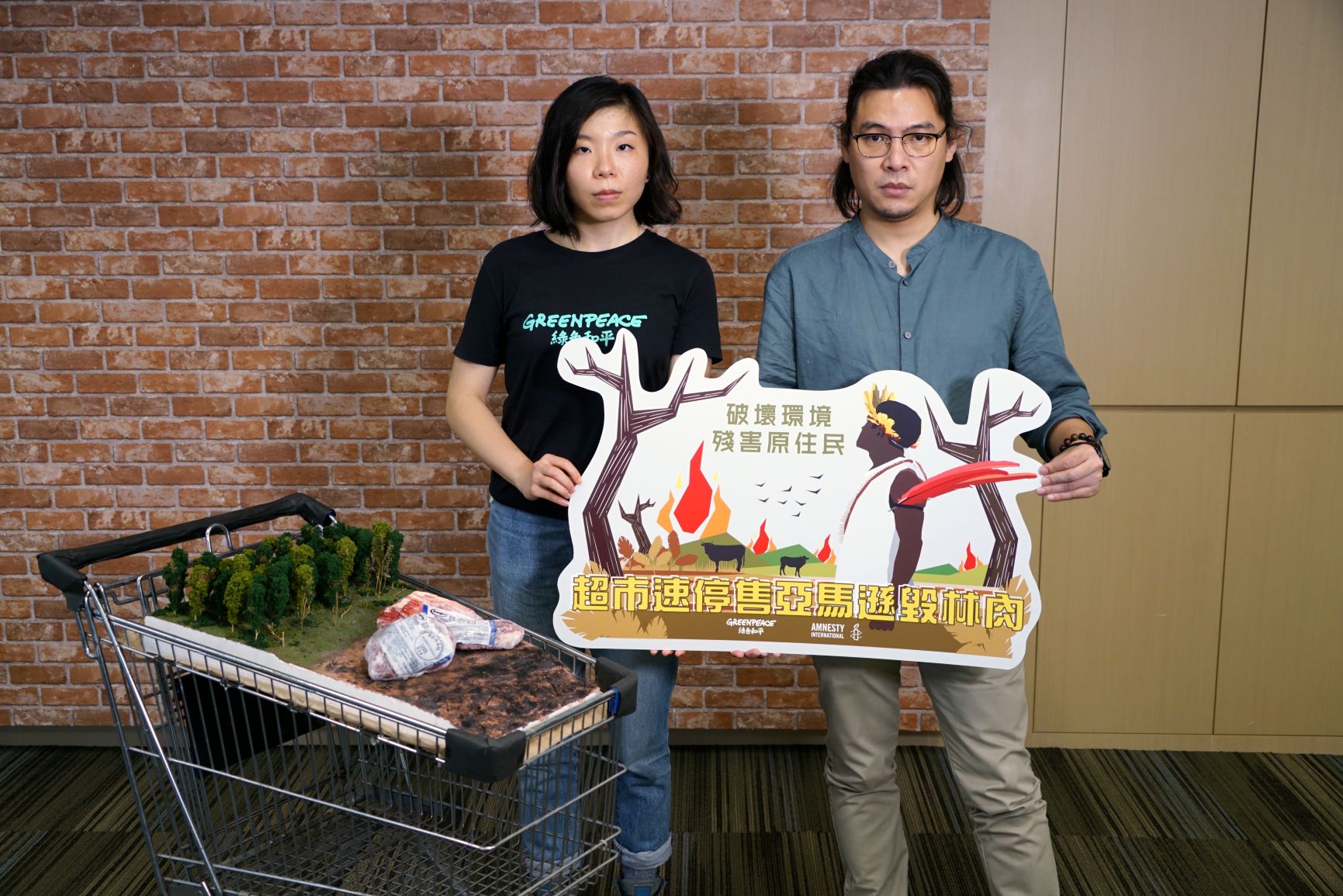
Protect Lantau, protect ocean biodiversity
A local campaign that has global significance is “Save our Lantau”, which we launched last year. More than 130,000 people have signed up to show their support. Lantau Island harbours precious biodiversity, it is Hong Kong’ s last line of defense.
Despite the crushing effect of the pandemic on the economy, the government is still pushing ahead with its destructive Lantau Tomorrow Vision project. It will cost a staggering HKD624 billion at the very least. Greenpeace got together with Professor Andy Kwan Cheuk-chiu, former associate economics professor at the Chinese University of Hong Kong and director of ACE Centre for Business and Economic Research to pen a report analysing the impact of Lantau Tomorrow on public finances. The conclusion: if the Lantau Tomorrow land reclamation project goes ahead, Hong Kong risks seeing its fiscal reserves being drained within 11 years.
We also invited two volunteer paragliders to swoop over Lantau Island, bearing the message “Save our Lantau” printed on their giant yellow sails. We recorded their breath-taking glides along with the inspiring beauty of the island in a video, drawing even more attention to the need to protect this precious part of Hong Kong.
Although the government has approved an initial grant of HKD550 million to assess the feasibility of Lantau Tomorrow Vision, there is a lot to do before the land reclamation project can actually start. Greenpeace will never give up “Holding on to our Seas”. We will continue to expose the environmental, economic and financial impacts of the project. We are now strategizing our next steps, including stepping up our work on promoting brownfield development as the most practical solution to Hong Kong’s housing problem.
Watch:Paragliding over Lantau
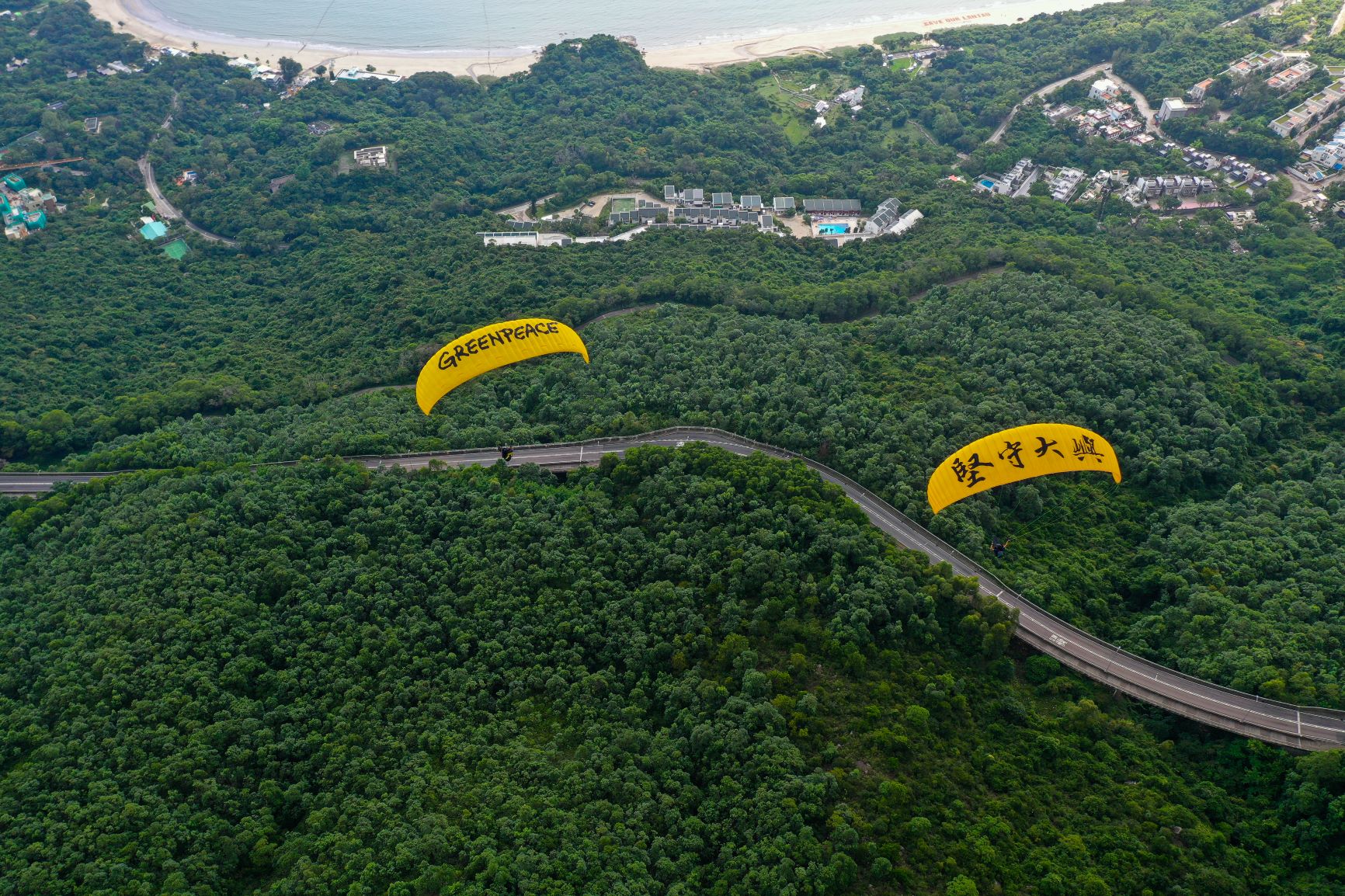
People power for zero plastics
In 2020, Greenpeace released Plastic at the Checkout: How Hong Kong Supermarkets Rank on Plastic (in English and Chinese), the city’s first ever report ranking seven of the big chains based on their plastic reduction policies and measures. All performed poorly. Following the release of the report, ParknShop and Wellcome separately announced that they would launch a number of plastic reduction measures and introduce targets for individual stores. These would include, for example, starting to phase out PVCs, which are hard to recycle and oxo-biodegradable plastics. These are certainly important steps, but Greenpeace hopes that all local supermarkets will set up long-term and ambitious timetables to reduce plastics. They must start taking responsibility for the enormous quantities of disposable plastic packaging that ends up choking our planet.
This year, Greenpeace will continue to encourage people from different walks of life to join our mission, to work together and create more inclusive zero plastics communities to build a zero plastics Hong Kong.
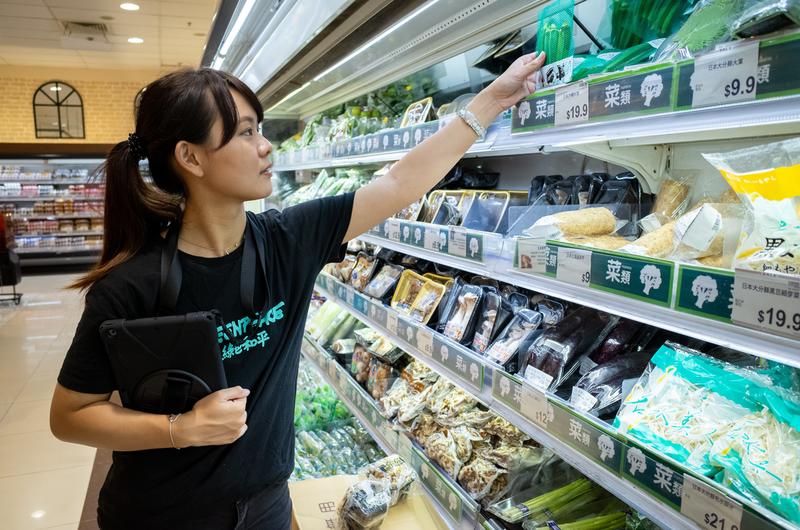
Greenpeace acknowledges the importance of staying safe during the Covid pandemic but that does not mean accepting disposable plastic tableware and food containers. We contacted more than 100 global experts to make a joint statement that confirmed it was absolutely safe to continue using reusable containers for food provided that they were washed thoroughly in hot water and detergent.
Communities and online influencers are an essential source of success in spreading our message to break away from plastics. At the beginning of the year, Greenpeace teamed up with a local walking group, “Hike for Health, Leave no Trace” to clean up Tai Mo Shan. On Mother’s Day, while we were all confined indoors, we held an online cooking class with actor and food expert Joey Leung to make delicious plastic-free and zero-waste dishes. We also held an online question and answer session on how we can beat the virus and breakaway from plastics with Simon Wong Kit-Lung, Chairperson and Chief Executive Officer of LH Group and Yvone, the owner of western restaurant Space cafe & kitchen, to talk about how they are avoiding plastics while staying safe in the pandemic. Celebrity Bonde Sham also hosted three episodes of our online show Fact Check, to break some myths about biodegradable plastics — they do not actually degrade as quickly as you would think, they are not hygienic as fruit packaging, and using them will make it even harder to break away from plastics in the long run.
Read more: 【#TuesPlasticFree Challenge】Join us to walk the talk!
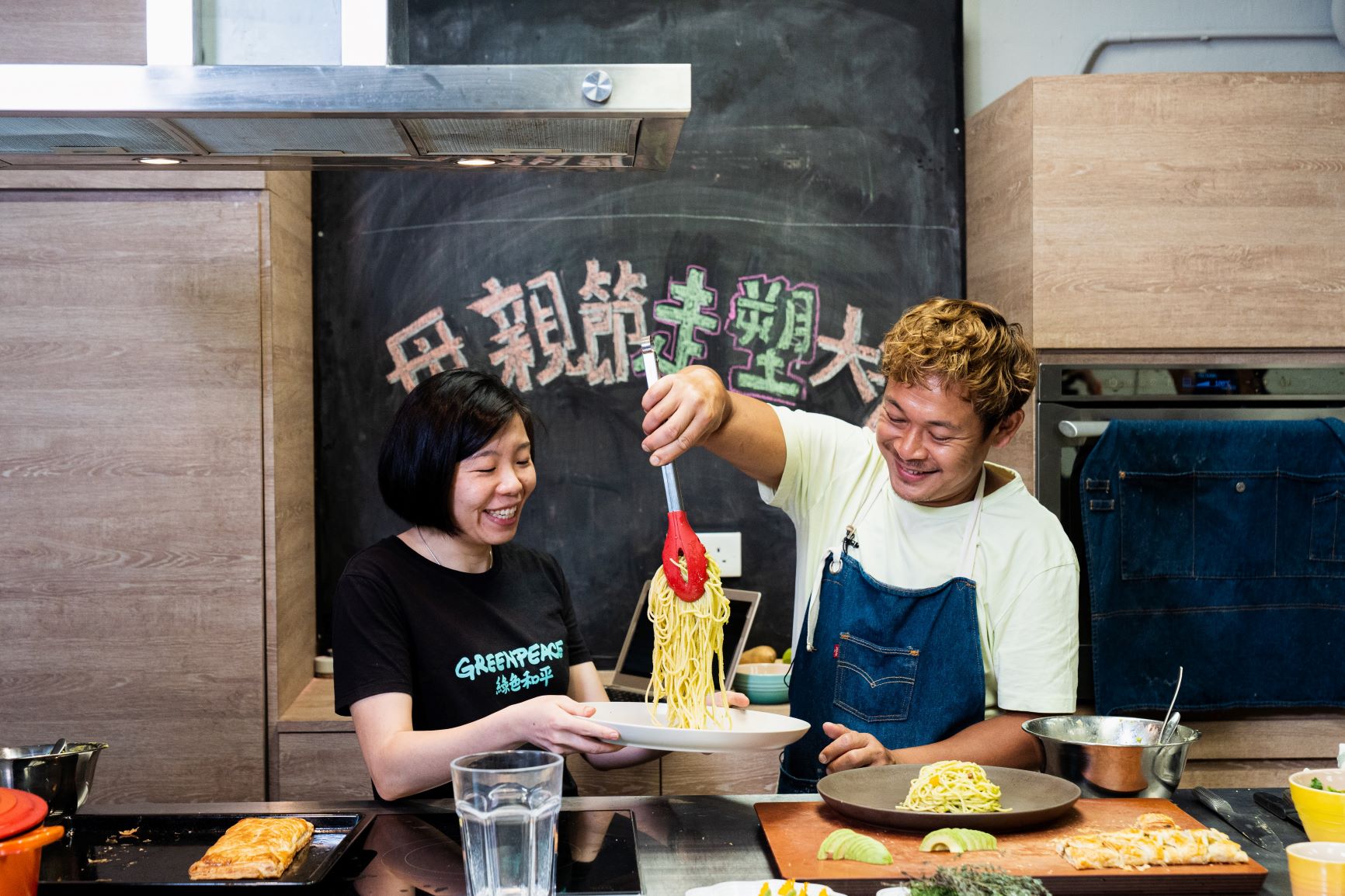
Trash tax can be delayed no more
Hong Kong’s landfills are bursting with the volume of rubbish we throw away rising year by year. Add to that the explosion in the use of disposable products during the pandemic, and we are literally drowning in trash. The introduction of a waste charging scheme is the cornerstone to any solution to tackle this issue. However, the government has dragged its feet on a bill for 15 years! Finally, the bill is now being resurrected. Greenpeace is joining with other environmental groups to monitor its progress and keep up the pressure to push forward with the bill so that it passes in 2021!
Let’s build a more beautiful home here in Hong Kong
Despite the immense challenges of last year, we did not once lose heart because we had you by our side. In 2021, we will steam ahead with our campaigns on plastic pollution, urban development and the big one — the climate crisis. Whatever challenges await us this year, we will meet them head on. Take our hand and let’s build a more beautiful home here in Hong Kong.

